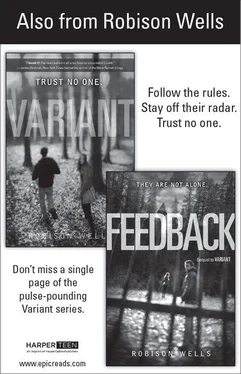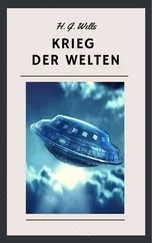A soldier appeared in front of Jack’s cell, and he could see that two other men were carrying the prisoner this time. The boy appeared to be unconscious.
They laid him in the cell, slumped in a heap. Jack only caught a glance at the boy’s face, but thought he recognized him from the warehouse. Now all Jack could see were the boy’s feet and lower legs, motionless.
The soldiers’ boots clunked down the otherwise silent hall. A moment later, the door opened.
“So you beat him unconscious and now you’re just going to leave him?” It wasn’t Eddie—it was Josi.
The sergeant yelled back, “I told you to shut up.”
“This is against the law,” she shouted, and the prison erupted with angry bellows and threats.
Jack curled up against the wall, and wrapped his arms around his knees. An instant later there was a deep clank and the sound of rushing water. The sprinkler head burst open, pouring down a hard spray like a wide-mouthed fire hose.
The water stung his skin, and Jack had to put his face down to be able to breathe. The others’ shouts were drowned out by the noise.
Oh, Aubrey , Jack thought. Don’t do anything stupid. Don’t get put in here.
They turned off the sprinklers much sooner than usual, and Jack lifted his head to take a deep breath. The water ran out of his cell to a long drain that flowed down the center of the hallway. The drains never could keep up with the volume, however, and two inches of standing water were still in the hall when the main door opened again.
The long room was silent.
“Is this where I’ll be staying?” a girl’s voice asked. It was sweet and clear—it didn’t seem to fit in the prison.
“Right down here,” the soldier responded, with an uncomfortable cough.
“Okay.”
Finally they came into view, the soldier and a very tall blonde girl—Nicole. Something about her seemed so out of place in the prison. Everyone else was ragged and filthy and soaked, and Nicole was her usual self: confident, happy, and beautiful.
The soldier, who appeared to be trying to avoid making eye contact with her, opened the cell door and motioned for her to enter.
“Thank you,” she said, stepping inside and turning to face him. He paused for a moment and Jack expected him to say something, but then the soldier swung the door closed and locked it. He bent over and set a large bottle of water outside her cell, the yellow tint bright and obvious.
As the soldier disappeared from view, Nicole flashed a smile at Jack, and then turned to look at her tiny cell. Nicole was taller than Jack, and he guessed the low ceilings and close walls would probably bother her a lot more than they did him.
The door closed with a bang, and Jack waited for the others to start up their usual questions, but the corridor remained quiet.
Still standing, Nicole turned back to face Jack. The smile was gone from her face, but she still looked surprisingly pleasant. “What happens now?”
“Nothing,” Jack said, his voice tired and scratchy. “We wait.”
Something about seeing Nicole was refreshing, even though they had never been friends. But even in this damp prison, with Nicole wearing the baggy, oversized clothes the military had given her to wear instead of her homecoming dress, Jack had trouble taking his eyes off her.
“It looks like they’re making some mistakes,” he said, rubbing his hand through his hair to wring the water out of it.
“Apparently,” she said softly.
Nicole wrapped her long, slender fingers around the bars and shook the door as though testing it.
Finally, Eddie spoke up.
“What’s your name?”
“Nicole,” she called back. “What’s yours?”
“Eddie Shaw,” he answered. His voice seemed to have lost all of its anger. He didn’t sound like himself.
“How long have you been here, Eddie?”
“Four days.”
“What happens?” Nicole reached up and touched the sprinkler on the ceiling, and then pointed at the water on the floor. Jack nodded.
“We wait,” Eddie said. “They come and take us eventually.”
“Take us where?”
“I don’t know. Testing, I guess. Hey—what can you do?”
Nicole looked around for a place to sit, but didn’t appear to like the idea of sitting on the wet, dirty concrete, or on the edge of the metal toilet at the back of her cell, so she leaned on the bars instead.
“Can everyone in here do things?” she asked.
“Everyone in here failed their test,” Josi answered.
“What’s your name?”
“Josi.”
“What can you do, Josi?”
There was a pause, and then Josi’s voice sounded embarrassed. “It’s weird. Just a brain thing. I’m good at remembering stuff.”
“How about you, Eddie?” Nicole asked.
“It’s . . . nothing,” he said.
Nicole pressed her face against the bars, trying to look down the corridor. “No, tell me. I’m sure it’s great.”
Jack watched Nicole with awe, wondering how someone could be so gentle and sincere. Had she always been like that?
“It’s nothing amazing,” he said. “I mean, it’s amazing, but it’s not amazing, not like some of the others.”
“What is it?”
“I have hot breath.”
Josi, who had been pestering Eddie the entire time Jack had been in the prison, laughed. “That’s it? You have hot breath?”
“It’s more than just a little hot,” he said defensively. “It’s really hot. Like, I can blow into a cup of water and it’ll boil.”
Josi laughed again, and Jack could hear the snorts and jeers of other prisoners. “You’re a human microwave?”
“You don’t get it,” Eddie said.
Nicole’s eyes met Jack’s, and she smiled warmly. She pointed, and then mouthed the words, “What can you do?”
Jack shook his head. He wasn’t supposed to be there. He should be with the Negatives, with Aubrey.
Or should he be here with Nicole? She seemed so fragile, so helpless. She needed his help here in prison more than Aubrey needed it with the Negatives, didn’t she? He could protect her.
“How about you?” Eddie asked. “What do you do, Nicole?”
“I’m here by mistake,” she said with confidence. “I think they have me mixed up with someone else.”
“Well, good luck,” Josi said. “Half the people in here claim they’re Negatives, but the guards don’t listen.”
Nicole stepped back from the bars and finally sat down on floor. “Maybe they’ll listen to me.”
A BULLETIN BOARD HAD BEENerected outside Tent 114, a place where some of the higher-ranking soldiers had offices, and Aubrey and Betsy stood in front, poring over the information for news about home. The first day it had been newspapers, the Salt Lake Tribune and the New York Times , the front pages stapled to the corkboard. But since then there had only been internet printouts, with short summaries of news.
Aubrey took it all to be a good sign—the army was trying to help. They weren’t blocking the Negatives from information about the outside world. On Aubrey’s second day in the tent they’d even been allowed to write letters home. Aubrey wrote one to her dad. She told him where she was, and what it was like, and how she’d never forgive him for trading her for beer. She’d signed her name, folded it neatly, and then crumpled it and threw it in the trash.
She wondered where she’d go if she ever got out of here.
“Hey Betsy,” Aubrey said, tapping a loose white paper that was thumbtacked in the corner of the corkboard. “From your place. ‘The Uintah and Ouray Indian Reservation reports that all previously missing children have been accounted for.’”
Читать дальше












